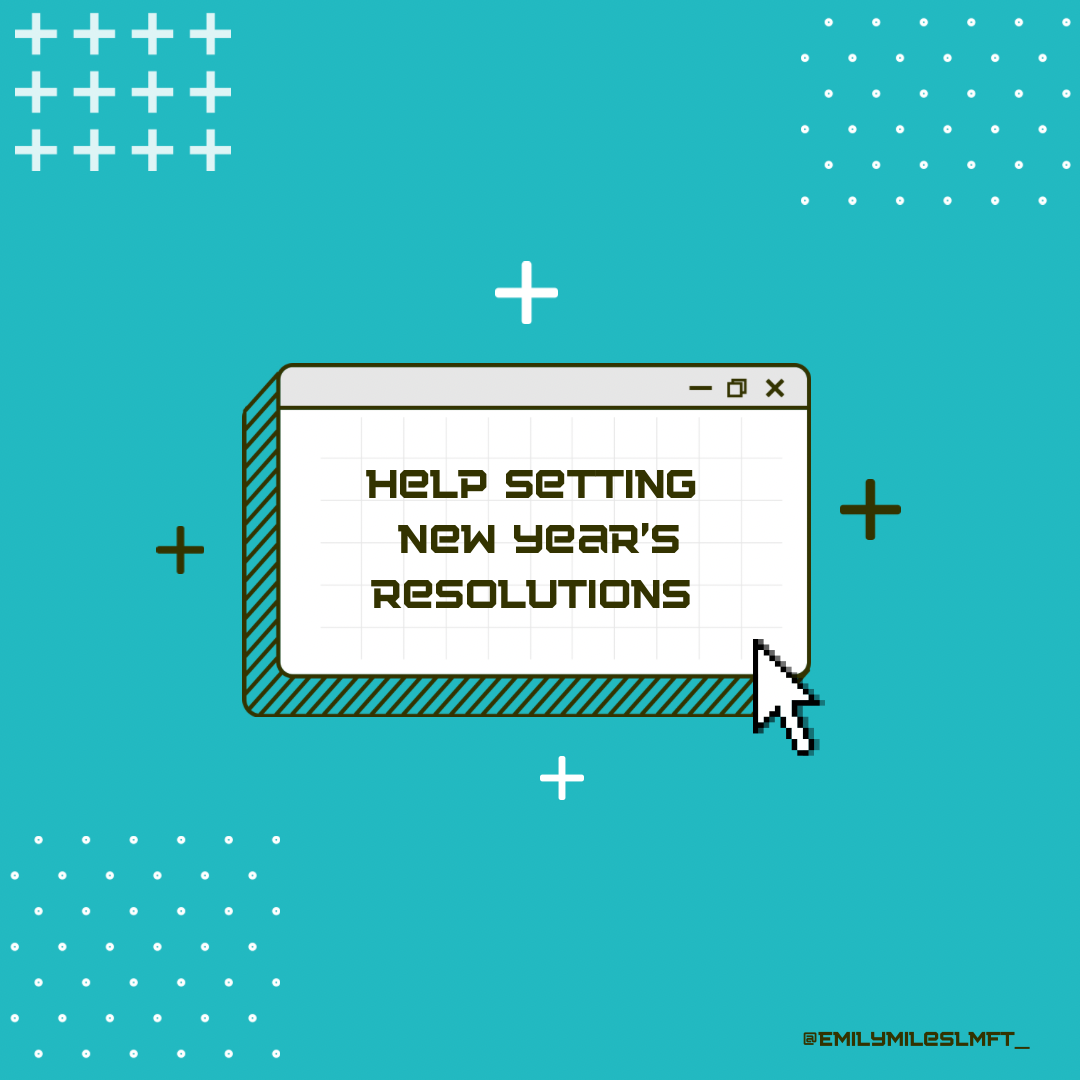How is your 2023 going so far?
Now that we are fully in the month of February, you may be thinking about your New Year’s resolutions a bit differently. Perhaps you didn’t set any at all. With a month or so in to 2023 perhaps some of the pressure is off. It’s not too late to set intention for this year! Something I often hear from my clients is the desire to not set up goals for the new year because of the fear that they won’t meet the goals and then will feel bad about themselves. While I don’t think it’s necessary to set goals, I notice a few reasons why people don’t meet their new year’s goals. Let’s discuss them:
- The goals set are unrealistic. It’s important that goals are within your control. Goals like, “get a boyfriend” are too specific and not within our control. We can’t make someone date us. But what we can do is create opportunities where there is a possibility to find a partner. A more realistic goal would be: “get on a dating website”. Another unrealistic goal tends to be things done every day. There are very little things we do daily. I know that when I’ve set goals such as “meditate daily” I haven’t succeeded. Start with a time goal that feels attainable and adjust from there. A more realistic goal is “meditate 2-3 days per week”.
- You just aren’t that interested in the goal. I’m guilty of all of these but when I’m not meeting a goal I find that motivation and interest are often lacking. Just because you know you should do something doesn’t mean you want to. Sometimes lack of interest indicates that it’s just not the right goal for you, other times it can reflect low motivation for change. You can read up on the stages of change here.
- You are too focused on restriction. Add things into your life instead of restricting. This is particularly true around food but can apply in many areas. Many people have blanket statements of: “I’m going to be healthier this year and lose weight”. Often this is done through restricting which isn’t realistic long term and can contribute towards lack of satisfaction, low motivation and even eating disorders. Instead of restricting, add in things, like more fruits and vegetables without eliminating that things you love completely. This method is a perception shift and makes things like limiting screen time more palatable. Rather than “restrict screen time” try to add something in such as reading, meditation or exercise. By adding in one of those things, you will naturally take away from the screen time.
- Your goals feel overwhelming. Something I say quite often in therapy is: “if the first step feels too big, take a smaller step”. One of my goals is to work on a bathroom in my home. When I think about the project as a whole it can feel daunting. It helps to break it down into tasks. Paint the walls, buy art/frames, hang everything up, etc. As I make my way through each task I can cross it off the list and feel one step closer to my goal. Progress!
- It’s not measurable. One thing that can help when making goals is to make it measurable and with a time restraint. Procrastination is real! If your goal is to get on a dating website then break down the steps as discussed above: 1) pick a website 2) make a profile 3) go live 4) start talking to people, etc. Next, add timeframe’s for when ideally you would like to get each of these done and make sure it’s realistic and in your control. I love to cook and there are a few recipes I’ve been wanting to try so I set a goal for 2023 to try them with time restraints. In other words, they are time specific. These time restraints help keep me accountable and help me plan rather than procrastinate.
- You aren’t flexible. Sometimes we set a goal and we don’t meet it. That’s ok, we change and sometimes so do our goals. Instead of getting down on yourself just get curious. Is it possible you’re dealing with one of the issues I just discussed? Remember that these goals are a guideline for you, not the law. Hold some compassion and grace for yourself. If you didn’t meet a goal and it’s still important to you, explore the issues we discussed and perhaps talk to a trusted friend and confidant.
Every year my husband and I sit down to look at our goals for the year before to see how we did. While we set several goals, if you are just starting out I would start with 1 simple but realistic, measurable and attainable goal. Allow flexibility. When we review our goals, if there is something we didn’t meet we explore why without shaming ourselves, to see if this is a realistic goal for ourselves and help understand why we couldn’t make it. We then create our goals for the next year. We also create vision boards. This is where we write our goals on one side of a large piece of paper and on the other do a collage from magazine cutouts that represent our goals. I put it in my office where I can frequently look at it as a visual reminder. I also have goals with steps written on a whiteboard in my office. This helps me track progress and provides some positive association when I get to check things off the list. Yay, Progress!
If you don’t like the idea of setting goals, consider picking 1 word to represent intention for the new year. Here are two examples:
-Balance: Balance represents goals to focus on work-life balance and incorporating more self care and self growth. It represents a relationship with food and incorporating both things I enjoy eating and things my body needs. Balance includes practice in creating more balanced thinking regarding experience with anxiety and perfectionism.
-Joy: Joy represents doing things that make you happy. It means saying yes to things you don’t feel like doing but you know will make you feel good. Joy means practicing gratitude.
I hope this helps you in setting your goals for 2023. Remember, goal setting is not necessary but it may be helpful in reaching your goals. I hope this helps you feel capable of setting and reaching goals and also helps you hold grace and compassion for yourself.

